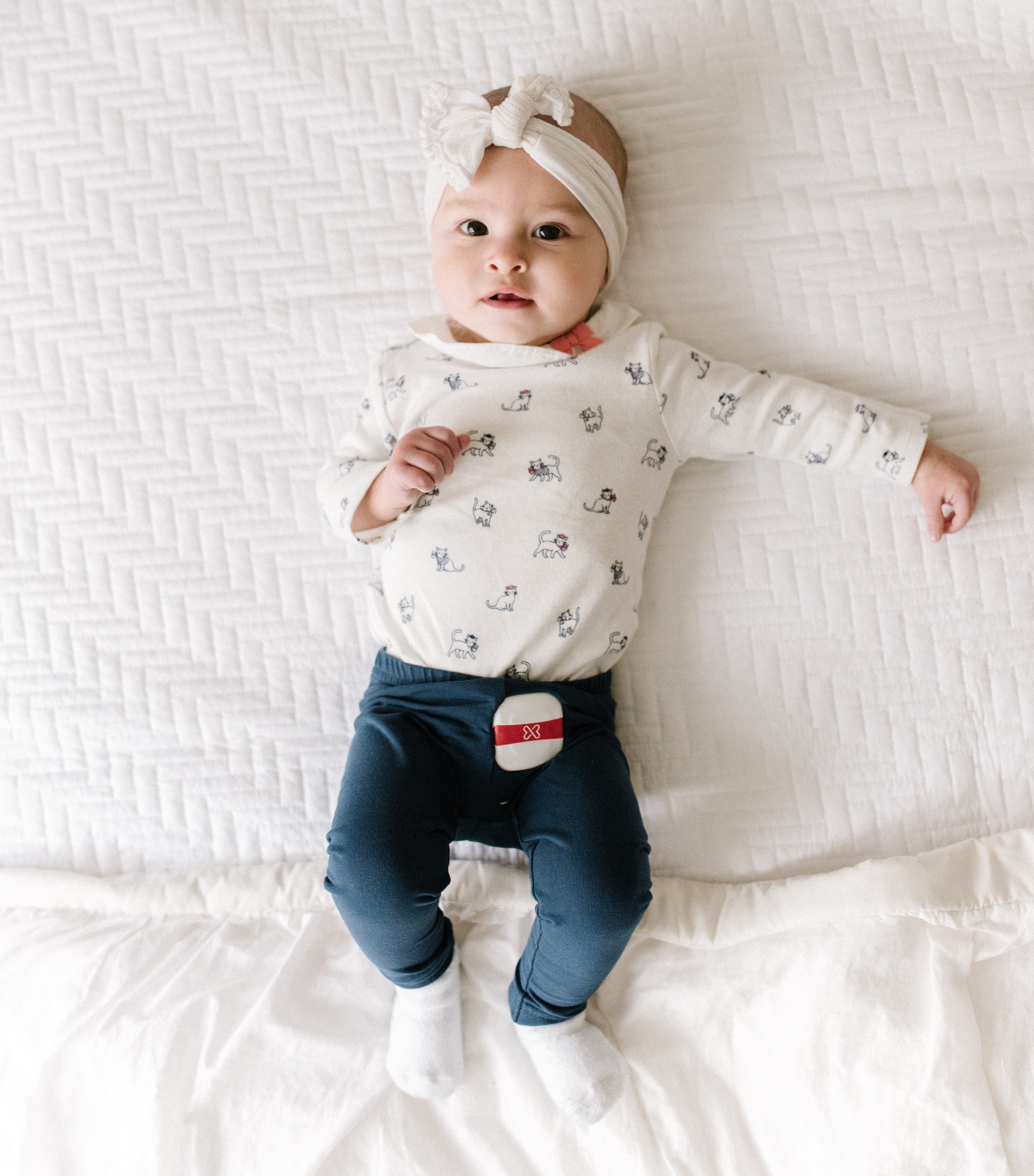It’s widely accepted that new parents get a minimal amount of sleep. Babies and young toddlers frequently cry during the night and need constant care while being watched during the day, which can be mentally exhausting. There are plenty of routines parents can try to help themselves and their child get more sleep. However, all of the advice or recommendations from friends, family and others can be overwhelming. Ultimately, parents need to do what’s best for their family in a way that fits their work-life balance.
Here are some tips for parents to improve their sleep habits, as well as those of their little ones, because the quality of a baby’s sleep is directly tied to parents’ exhaustion.
Establish Routines and Stick to Them
Babies and toddlers enjoy routine because it sets their internal clock. Parents should do their best to keep to a routine throughout the day, especially before bedtime. This means a consistent bottle feeding (usually right before bed), a final diaper change and scheduled nap times. Babies do well if they get used to a little amount of alone time, so parents should put them in their cribs, at a set time, before a nap. This helps them self-soothe and relax (the babies do this!) If a back rub or story time are part of the bedtime routine, then continue that until they’re older toddlers. The routine is comforting because they begin to connect this order of activity with going to bed and will naturally include sleep as part of that schedule.
Busy parents know that a missed nap or a day of traveling with the kids can throw them off for quite some time. The key is to quickly readjust back on schedule and don’t allow missed naps or varying bed times to become the “new normal.”
Watch Your Diet
Restricting caffeine consumption is vitally important, especially for nursing mothers. If Mom has a shot of espresso, in the afternoon, then nurses the baby at home, some of that caffeine passes through to the child. It’s understandable for parents to crave two or three cups of coffee when they have been up half the night with a cranky child, but all of that caffeine can interrupt their own sleep when they finally have the time to lay down. If possible, parents should have just one cup of coffee or tea right after morning nursing, and drink water the rest of the day. They should also pay attention to sneaky sources of caffeine such as chocolate. Too much caffeine can prevent parents from taking a power nap while the child is napping, keeping them from getting a much-needed natural boost, at night.
In addition to caffeine intake, new parents should eat balanced meals, whenever possible. Sometimes the only lunch option is leftover dino-nuggets and an energy bar, but parents should do the best they can. A balanced, properly spaced-out diet will help parents feel more energized throughout the day and allow them to sleep better at night.
Use Data to Reduce Anxiety
Many grownups utilize fitness trackers that include data about their sleep patterns. These devices detect the amount of restless sleep and total hours, so the user can correlate certain patterns with either poor or quality sleep. New products on the market such as the Butterfly baby monitoring and data system from XTRAVA provide parents with data about their babies. These devices track sleep quality for kids ranging from newborns up to toddler age. Many of them monitor length of sleep, their sleeping position and the longest duration of quality slumber. They also determine if the child is sleeping with normal breathing, which gives worried parents additional peace of mind.
Butterfly also tracks diaper wetness and sends out wetness alerts that can help parents see correlations between how fast or frequent changes happen and the length of the baby’s sleep intervals. A baby with a wet diaper might be restless, but not screaming, which then causes anxiety and pacing from the parents. Quantifying the data outputs means parents can rely on information instead of guesswork and make active changes that will improve sleep for everyone in the family.
The data isn’t another way for parents to “helicopter” over their kids, but instead provides them with actionable data. Over time, parents who use this monitoring will see patterns. Did they change diaper brands recently and the baby was extra fussy at night? Were warm baths missed for a day or two? The data is vital for reducing some of the anxiety that comes with a baby or fussy toddler. It’s hard for parents to know if they’re making the right choices and it’s common to frequently worry about a baby sleeping in a crib. While information from devices won’t make people not worry about their kids, they provide more insights to see what’s working and what’s causing fussiness.
Parents dealing with sleep-deprived nights can use several tips to improve the length and quality of their sleep. And a final thought for parents is to remember these months and years of babies and toddlers are fleeting, so embrace the sleepiness and enjoy every minute.


